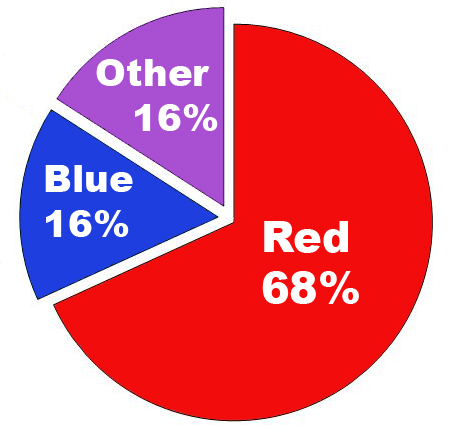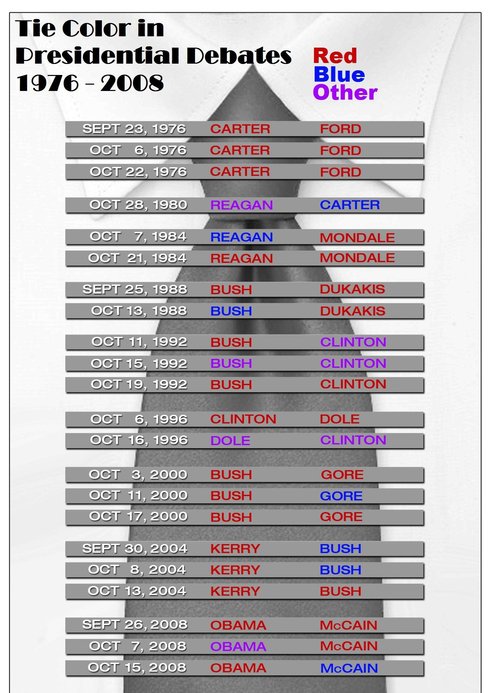Rare New Footage: JFK on First Debate with Nixon
 Wednesday, December 4, 2013 at 4:31PM
Wednesday, December 4, 2013 at 4:31PM  JFK discusses historic first debate with Richard Nixon in candid, newly discovered footage, as seen on HardballFrom my original post at MSNBC.com, Nov. 20.
JFK discusses historic first debate with Richard Nixon in candid, newly discovered footage, as seen on HardballFrom my original post at MSNBC.com, Nov. 20.
“As a Democrat, I can say I don’t know what we’d do without television.”
That was Jack Kennedy, reflecting on the now-legendary first debate with Richard Nixon of the 1960 presidential campaign. Newly discovered footage from the NBC News Archive shows Jack Kennedy speaking candidly as he puts on make-up, just four days after the famous confrontation played out on live television.
The first presidential debate of 1960 was the first one ever televised. More than sixty million people watched and what they saw proved to be more important than what they heard: a haggard Nixon, just back from the hospital, pale, with sweat on his chin and upper lip.
By comparison, Kennedy was cool and confident, projecting the “winning” image that would take him to the White House.
The story goes that Nixon relied on make-up that failed to hold up under the hot lights of the studio. The newspapers had a field day with the story, and “The Chicago Daily News” went as far as to suggest that Nixon’s make up may have been intentionally sabotaged by a Democratic make-up artist.
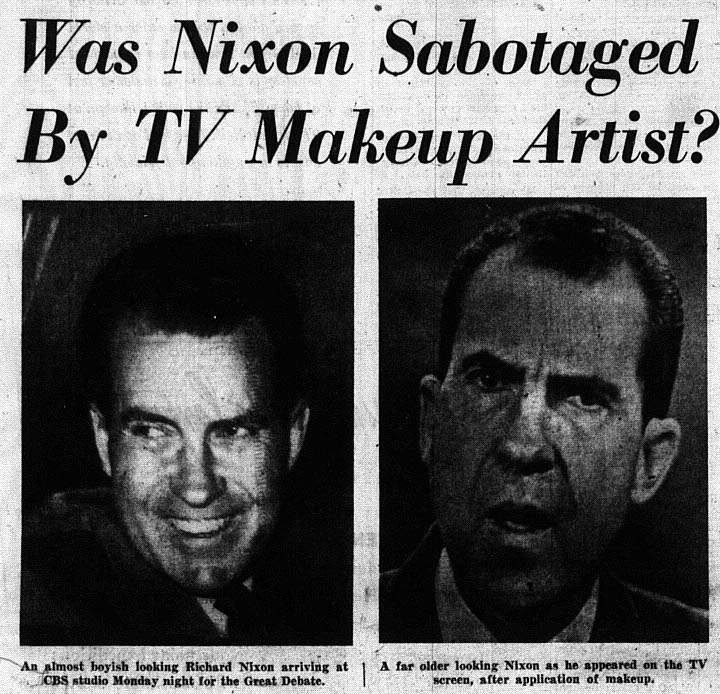
That story turned out to be untrue, but the “make-up issue” was as hotly debated as the debate itself.
This clip is a rare glimpse behind the curtain at Jack Kennedy’s off-air persona as he prepared for an interview with David Brinkley and Chet Huntley of NBC News. It was taken at his home in Hyannis on Sept. 30, 1960.
For additional information, please contact Hardball staff or the NBC News Video Archive team.
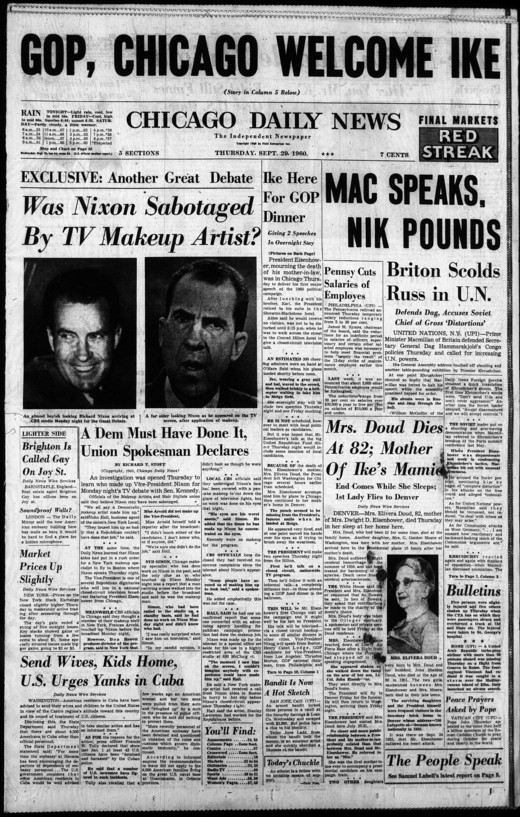 Courtesy Chicago Public Library
Courtesy Chicago Public Library
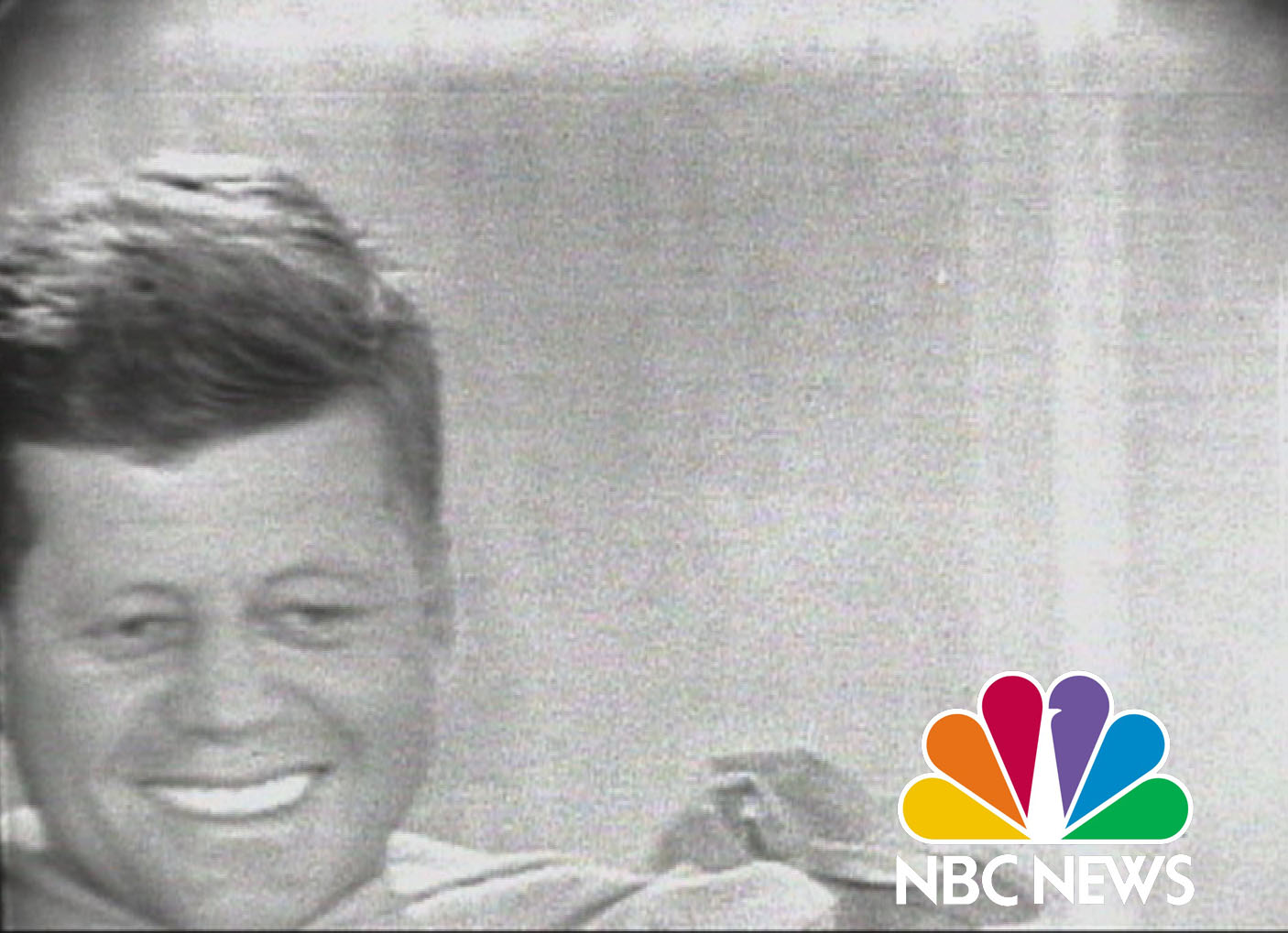 New, candid footage of JFK's off-air conversation before an interview with NBC News is discovered
New, candid footage of JFK's off-air conversation before an interview with NBC News is discovered
 New off-air footage of Kennedy using eye-drops prior to interview with Chet Huntley and David Brinkley of NBC News discovered in archive
New off-air footage of Kennedy using eye-drops prior to interview with Chet Huntley and David Brinkley of NBC News discovered in archive
 Rare, candid footage of JFK having makeup applied is discovered in NBC News Archive, featured on Hardball with Chris Matthews on MSNBC
Rare, candid footage of JFK having makeup applied is discovered in NBC News Archive, featured on Hardball with Chris Matthews on MSNBC
Transcript:
KENNEDY: See that story about the Democratic makeup man that sabotaged Nixon?
OFF-CAMERA: [inaudible]
KENNEDY: Yeah, who did make him up?
OFF-CAMERA: [inaudible]
KENNEDY: Yeah, then why-
OFF-CAMERA: Who was it Len, do you know?
OFF-CAMERA: No, he has a man who does that for a long time.
KENNEDY: Same fellow, but why doesn’t Chicago Daily news have that?
OFF-CAMERA: They weren’t looking for it. [inaudible]
[…]
KENNEDY: I must say, all these newspapers keep putting a’ knock now on the debate. I think it’s just (pause) media rivalry. Isn’t it?
OFF-CAMERA: Well there’s some of that.
[…]
KENNEDY: …as a Democrat, I can say I don’t know what we’d do without television. I look at print and… (shakes head)
 1960,
1960,  Chicago Daily News,
Chicago Daily News,  Chris Matthews,
Chris Matthews,  Hardball,
Hardball,  JFK,
JFK,  Kennedy,
Kennedy,  Makeup,
Makeup,  Newly Discovered,
Newly Discovered,  Nixon,
Nixon,  Rare,
Rare,  Sweat,
Sweat,  debate
debate 

